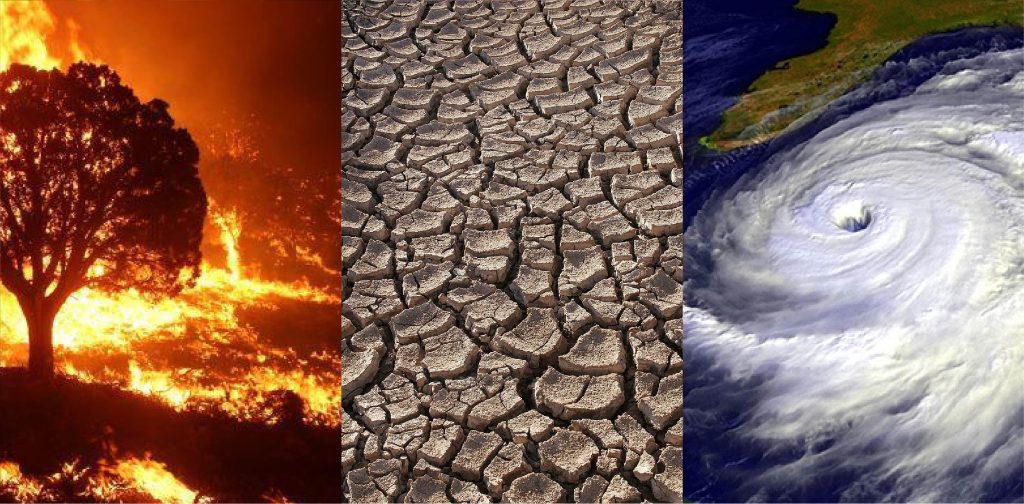Understanding International Climate Change Law
In the fight against the escalating effects of climate change, the role of international law in addressing climate change is cardinal and cannot be overstressed. International law plays an integral role in mitigating the impacts of climate change by anchoring well-framed policies, and setting the stage for climate justice. However, the efficacy of international law largely depends on state compliance and enforcement mechanisms, underscoring the importance of the rule of law and political will.
International Climate Change Law emanates from world treaties such as the Paris Agreement and the United Nations Framework Convention on Climate Change. It governs processes such as the measurement of greenhouse gas (GHG) emissions and the establishment of Nationally Determined Contributions (NDCs) through which countries enumerate their commitments to reducing emissions and addressing the impacts of climate change.
Climate Change and Public International Law
Climate change significantly intersects with public international law. Laws relating to human rights, environmental law, the law of the sea, and sustainable development are increasingly being examined through the lens of climate change. The United Nations General Assembly and the international court of justice have shown an increased interest in climate change cases as well. Climate change intersects with human rights, affecting the fundamental rights to life, health, food, and an adequate standard of living. This has elicited initiatives towards the establishment of a unique body of climate change law that operates within the broader umbrella of international environmental law. For instance, the concept of common but differentiated responsibilities (CBDR) has been reiterated in environmental treaties like the Convention on Climate Change, underscoring the need for equity in the push for climate action.
Necessary Questions in International Law
The broad catalog of international law presents many questions relating to climate change. These questions rotate around the effectiveness of the current legal frameworks, their administration, and enforcement to combat the global climate crisis. These concerns revitalize for the necessity of international climate change law targeted at radical climate action and strict consequences for non-compliance to spur the international community’s efforts to limit climate change.
Pertinent issues also revolve around the responsibilities of states as per the United Nations Framework Convention on Climate Change. Obligations of states encompass emission reduction commitments, climate adaption measures, financial commitments to combat climate change, and reporting responsibilities. The law of the sea also raises concerns around the maritime impacts of climate change and the duties of small island states and other coastal nations.
Considering Risks and Opportunities in Climate Cases
Climate cases presented before the international court of justice come with their unique set of risks and opportunities. The litigation of climate disputes at this level invites a global, rather than local, scrutiny of climate issues. This international focus potentially margining duplicative litigations and practices in various jurisdictions, leading to a smoother and more efficient dealing with effects of climate change.
Nonetheless, there are also significant risks involved. There’s an inherent risk of unsuccessful cases setting negative precedents that might discourage future climate change litigation or negatively affect the chances of success in subsequent lawsuits. Thus, there’s a need for substantive preparation and meticulous handling of climate cases to leverage the opportunities that they present and navigate associated risks.
Climate Change Case Scenarios
Climate change case scenarios are diverse, reflecting the comprehensive impacts of climate change on various aspects of human life and the environment at large. The impacts of climate run from environmental degradation to economic instability and conflict, as communities compete for dwindling resources. Case scenarios also involve small island states exploring legal actions against more substantial greenhouse gas emitting nations. Moreover, many cases revolve around through interpretations of the Paris Agreement, its enforcement, and how the international community holds onto its set climate goals.

Concluding Thoughts on Climate Change Law
Mixing the strenuous fight against climate change and the complexities of international law, a well-structured climate change law is an inevitability. Being realistic of the many challenges and barriers to the enforcement of international climate change law, innovative and adaptable legal approaches are a necessity. It is no longer left for Fortune to act on, but a battle for nations to decide in unison.
Additional Resources in International Climate Change Law
Several resources explore international climate change law in great detail. These include academic and legal literature, such as the Journal of International Law and numerous books dedicated to the subject. Other resources include reports and publications from the United Nations Framework Convention, the Intergovernmental Panel on Climate Change, and the United Nations Human Rights Committee.
Consent Management: Your Privacy Matters
While delving into the realm of international climate change law, it’s important to note the significance of your personal data privacy. Your information is essential to us, and its safety is our top priority. We can pledge our commitment towards transparent handling of your data, adhering to all existing laws, and doing all that is humanly possible to protect your privacy.
